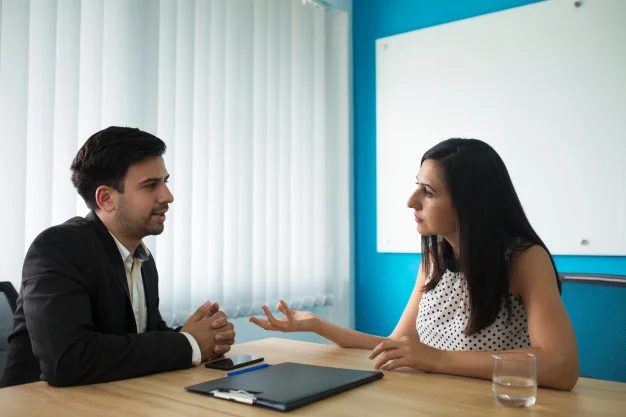Staying focused in an interview is easier said than done. Whether it’s your first interview or your fifth this month, distractions, nerves, and mental blank-outs can strike at the worst moments. But focus is everything. How you listen, think, and respond during those few critical minutes can decide whether you move to the next round.
This guide will provide 10 practical tips to help you stay calm, focused, and in control during your next job interview.
These interview focus strategies are designed for job seekers and working professionals who want to improve performance during online and in-person interviews. From active listening to mental resets and posture tricks, each tip will help you present your thoughts clearly and stay one step ahead in the conversation. If you’re preparing for an upcoming interview, these simple yet powerful techniques can give you the edge you need to stand out.
Related: Ace Your Interview: 5 Hacks to Stand Out from the Pack
How to Stay Focused in a Job Interview
1. Before you enter
The minutes before an interview are the toughest. One is never quite sure of what to do – social networking, a chat with a friend, or flip through a magazine? Anything that shifts your single-mindedness is a bad idea. Get your thoughts in sync with your goal. Why are you here? How important is this job to you? Asking yourself these questions can help you realign.
2. Focus on your skills
To concentrate during the interview, think of one or two things that you would like your interviewer to remember you for. Is it your knowledge, communication skills or project management achievements? Zeroing in on a few things will keep your brain alert and fixated.
3. Review your notes
You have already done your research and rehearsals. Review your notes mentally before you face the interviewing panel. Recall the keywords in the job listing, your major achievements and your strengths. But don’t fret if you can’t mentally rehearse everything. You need to be confident, not nervous.
4. Think happy thoughts
You may find this clichéd but good thoughts will relax your mind and release happy hormones. A calm and happy employee is always a welcome addition to any team and company.
5. Stay calm
An interview room can be intimidating for the person being interviewed. But stress can inhibit your ability to think clearly. Ensure you remain calm and collected. This will help you to listen better and best answer questions.
6. Sit up straight
An upright and alert posture will keep your mind sharp. Slouching or leaning on the chair not only makes you feel lethargic but also makes a poor impression on the interviewer.
7. Switch off the cell phone
Make sure you switch off your cell phone in order to avoid any distraction. Constant pinging sounds or a phone call will derail your thoughts and you won’t be able to focus.
8. Participate in the conversation
If the interview is one-sided, it indicates that you’ve lost your way. The interviewer will appreciate you if you are able to have a conversation and make your point clearly. Remember, that apart from hard skills, the interviewer is also looking for soft skills.
9. Don’t lose patience
Realize that the interviewer may use tactics to put you in an uncomfortable position or trick you by looking unhappy or dissatisfied with your answers. Don’t lose patience. Try controlled breathing and remind yourself why you are in that room.
10. Make up for a mistake
If you feel you messed up – either you mumbled or went off track – try and revive the situation. If you need more time, ask the interviewer a question so that you can gather your thoughts.
It is not always easy to stay focused during an interview, more so if you feel it’s not going well. But staying alert, calm and fixated on the interview and interviewer sends out the message that you can stay cool even when in the hot seat. You come off as a confident contender, recommending yourself to the employer by your behaviour and body language.
Don’t Miss: 20 Practical Interview Tips to Get a Job Offer in 2025
FAQ on Interview Tips To Stay Calm
Q1. Why do I lose focus during interviews even after preparing?
Nerves, overthinking, and distractions can all affect your focus. Try grounding techniques like deep breathing or short pauses to help regain control during the conversation.
Q2. Is it okay to take a pause before answering a question?
Yes, absolutely. A short pause shows that you’re thinking carefully. It also gives you time to organise your thoughts and answer more clearly.
Q3. How can I stay focused during virtual interviews?
Choose a quiet space, turn off notifications, use headphones, and close unrelated tabs. Reduce physical and digital distractions as much as possible.
Q4. What should I do if I blank out during an interview?
Stay calm. Ask the interviewer for a moment, take a breath, and try to recall part of the question. It’s okay to reframe your response if needed — interviewers value composure under pressure.
Q5. How does posture affect interview focus?
Sitting upright and maintaining good posture helps your mind stay alert. It also boosts your confidence and improves how engaged you appear to the interviewer.




